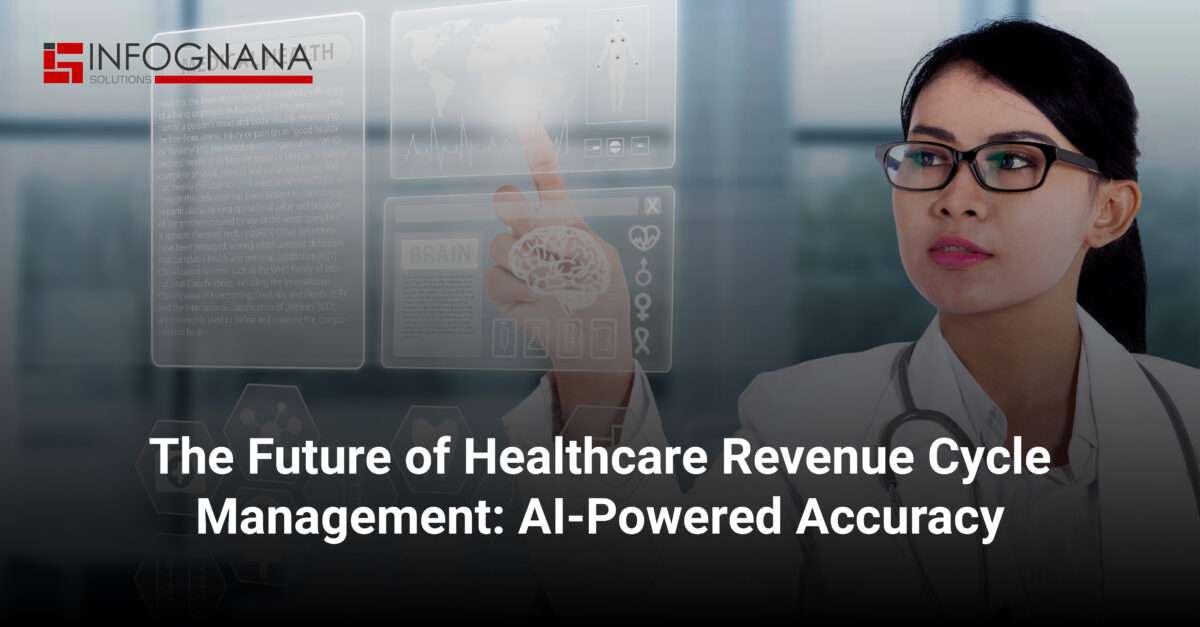The Future of Healthcare Revenue Cycle Management: AI-Powered Accuracy
AI is revolutionizing healthcare revenue cycle management (RCM). With patients becoming more complex, medical billing becoming more layered, and regulations in constant flux, the traditional model of RCM management just isn’t holding up. According to Experian Health’s 3rd Annual State of Claims Survey, the numbers are trending in the wrong direction, with 54% of the providers saying claim errors are increasing, 68% find submitting “clean” claims more challenging than a year ago, and missing or inaccurate data is at 50% in 2025, up from 46% in 2024. Which is why most providers are leaning towards smart revenue cycle management services. The future is all about getting a lot smarter with the tools we already have. And that’s where automation is stepping in with a big impact.
Why the Current RCM System Isn’t Working?
Despite the steady stream of new tech, the healthcare revenue cycle remains surprisingly outdated in many places. Some of the biggest pain points without proper revenue cycle management include:
- Rising claim denials: Denial rates are only seen to be increasing with each passing year. Healthcare providers have seen a 23% increase in claims denial rates over the last few years.
- Manual processes: Billing, claims, and eligibility checks still often rely on manual input. This inefficiency is costing healthcare facilities big time.
- Coding errors: The AMA warns that poor documentation and coding not only impact revenue but also create compliance issues.
- Patient payments: With more patients on high-deductible plans, collecting payments has become more difficult.
- Compliance: Ever-changing regulations make staying on top of coding guidelines and payer rules nothing less than a full-time job.
- System silos: Many RCM systems still don’t fully integrate with EHRs, making the process harder than it already is and prone to errors.
How AI is Revolutionizing RCM?
- Improving Data Accuracy from the Very Beginning
One of the biggest drivers of claim denials is inaccurate data. With AI-powered RCM, automating data validation from the very beginning is already proving beneficial. Information is now being cross-verified in real time, ensuring that what goes into the system is accurate and matches patient records, claims, and payment systems.
Medical billing automation tools are trained on algorithms that spot unusual billing patterns and flag possible overbilling or compliance risks before the claim is sent to the insurers. It also reduces the chances of any fraud. On top of that, automated documentation assistants are helping clinical staff ensure their notes match up with coding standards and reduce coding errors.
- Smarter Claims Management and Recovery
AI-powered RCM improves the chances of claims getting accepted the first time around. Smart RCM systems now analyze historical claim patterns and payer behavior. If a claim looks like something that’s been denied before, it gets flagged before submission. This proactive review is reducing initial denial rates and helping hospitals recover revenue that used to be written off.
Documentation and coding are getting an upgrade, too. Instead of waiting for an auditor to find mistakes, smart systems now read clinical notes in real time and suggest codes as providers document care. Today, insurance verification has moved past basic checks. Medical billing automation systems are constantly monitoring changes in coverage, validating benefits, and identifying authorization needs upfront, ultimately reducing the chance of claims getting denied.
- Making the Revenue Cycle Work Faster and Smarter
Automation is also simplifying revenue management. Tasks like posting payments, reconciling accounts, and tracking payer timelines are being handled by systems that can do it faster and more accurately. Healthcare providers turn to revenue cycle management companies to automate their workflow, reduce errors, and better allocate their resources.
Medical staff are no longer required to spend hours chasing after paperwork or verify insurance manually. With much of that handled by the AI-powered RCM, teams can now focus on more strategic work or on patient-facing roles that require their expertise.
- Staying Compliant and Secure
Falling behind on coding updates or data protection protocols can lead to penalties. Automation has made it easier to stay up-to-date. AI-powered RCM is also capable of fraud detection. Algorithms are trained to notify suspicious claims before they’re submitted. This not only protects the organization from financial losses but also helps maintain trust and compliance with regulations like HIPAA.
- Better Financial Forecasting
One of the most underrated benefits of RCM automation is in financial forecasting. By looking at historical billing and payment data, these systems can identify trends that aren’t always visible at a glance. That includes patient payment behavior, seasonal fluctuations, and payer-specific patterns.
For example, if revenue typically dips in the third quarter due to a change in patient volume or payer delays, that insight tells providers to allocate resources smartly. Which means any bump can be anticipated without being caught by surprise.
This kind of visibility makes planning more precise and helps healthcare providers maintain financial stability throughout the year.
This transition didn’t happen overnight, and it doesn’t mean replacing humans with machines. It rather means giving healthcare staff the tools to work smarter, solve problems before they grow big, and focus their energy where it’s really needed. And with automated tools becoming more accessible and easier to integrate, it’s becoming a household name in most healthcare facilities.
Companies like Infognana are leading this change by offering solutions that handle compliance, secure patient data, reduce errors, and increase revenue.
Partner With Infognana Solutions for RCM Automation Solutions and Services
We are a revenue cycle management company with 25+ years of industry expertise in healthcare revenue cycle. We combine deep knowledge in RPA and HIPAA compliance standards with smart RCM automation to optimize your cash flow, reduce errors, and improve your revenue. Partner with Infognana solutions to transform your financial operations and drive sustainable growth with AI-powered RCM solutions and services. Talk to us now!



